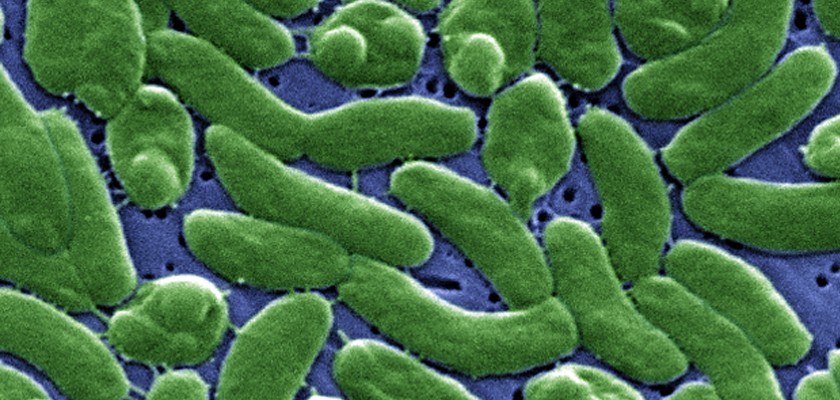If you have an open wound, be careful about getting in water around the coast or eating raw seafood.
One Baldwin County man learned this lesson the hard way.
Beau Cook from Elberta caught bait fish in Week’s Bay. The dorsal fin of one of the fish cut his finger when he and his son took the bait fishing in the Gulf on May 16. A few days later, he was in the emergency room.
Cook was infected with Vibrio-Vulnificus, a bacteria related to V. cholera, the causative agent of cholera. The bacteria infected his hand but later spread to his armpit and went all the way to his beltline.
“I’ve been fishing for 30 years, charter boat captain, you know, deckhand,” Cook said. “I’ve been messing with dead bait, dead fish for a long time, but I really didn’t expect that to happen … I’d heard of people stepping on an oyster shell … but never really seen it on the fishing side as much.”
Cook got home on the night of May 16 and thought his hand was okay. When he woke up the next morning, it was tingly and swollen. He thought he must’ve hit it while cleaning the boat and cracked a bone in his finger.
When he went to the immediate care in Foley, they did an x-ray and told him he might have gout, but when they gave him a steroid shot, it didn’t work.
Cook kept experiencing pain in his hand, then his son came over and made him go to the hospital. His daughter noticed that his entire left side was black and blue. His skin had started to blister.
“It was like somebody had hit me with a baseball bat in the ribs,” Cook said.
When Cook received emergency surgery in Fairhope, he was in and out of consciousness. The doctors told his family that he probably wouldn’t make it. He said he flatlined once, but they brought him back.
“I feel blessed to be here by all means,” Cook said.
According to the Centers for Disease Control (CDC), you can get through eating raw or undercooked seafood, namely oysters. You can also attract Vibrio infections through open wounds if those wounds come into contact with undercooked seafood, dripping and brackish water.
Brackish water is water that is more saline than freshwater but less saline than ocean water. It usually exists in transitional areas between fresh and marine waters, such as estuaries.
Vibrio is typically treated with antibiotics, but doctors may have to amputate limbs to remove dead or infected tissue. Some Vibrio infections can kill the flesh around the open wound.
Doctors told Cook’s family they didn’t think he would survive. Luckily, after approximately 40 days in the hospital and around six surgeries, he is now okay.
You can protect yourself from Vibrio by staying out of saltwater or brackish water if possible when you have an open wound, or else covering your wound with a waterproof bandage. You should also wash wounds and cuts thoroughly.
Though anyone can get a Vibrio infection, those with liver disease or who take medication that impairs immune function are more susceptible.
Wounds infected with Vibrio may be accompanied by fever, redness, pain, swelling, warmth, discoloration and discharge. Those with bloodstream Vibrio infections might also experience fever, but also chills, low blood pressure and blistering skin lesions.
1819 News reached out to the Baldwin County Environmental Services to ask about the prevalence of Vibrio in Baldwin County water and received no response.
Cook said he received more surgeries, including a skin graft. He still can’t grip well with the hand that was infected, and some of his fingers remained numb.
“It’s getting better,” Cook said. “It’s just going to take time … I had some good doctors and a lot of prayers. If it hadn't been for my family, I probably wouldn’t have been to the doctor that day.”
Cook said though he loves the water, he won’t be returning to it any time soon.
“My boat’s for sale right now,” Cook said. “This kind of did me in. It’s probably going to take me a good while for me to get past this one.”
To connect with the author of this story, or to comment, email will.blakely@1819news.com or find him on Twitter and Facebook.
Don’t miss out! Subscribe to our newsletter and get our top stories every weekday morning.










